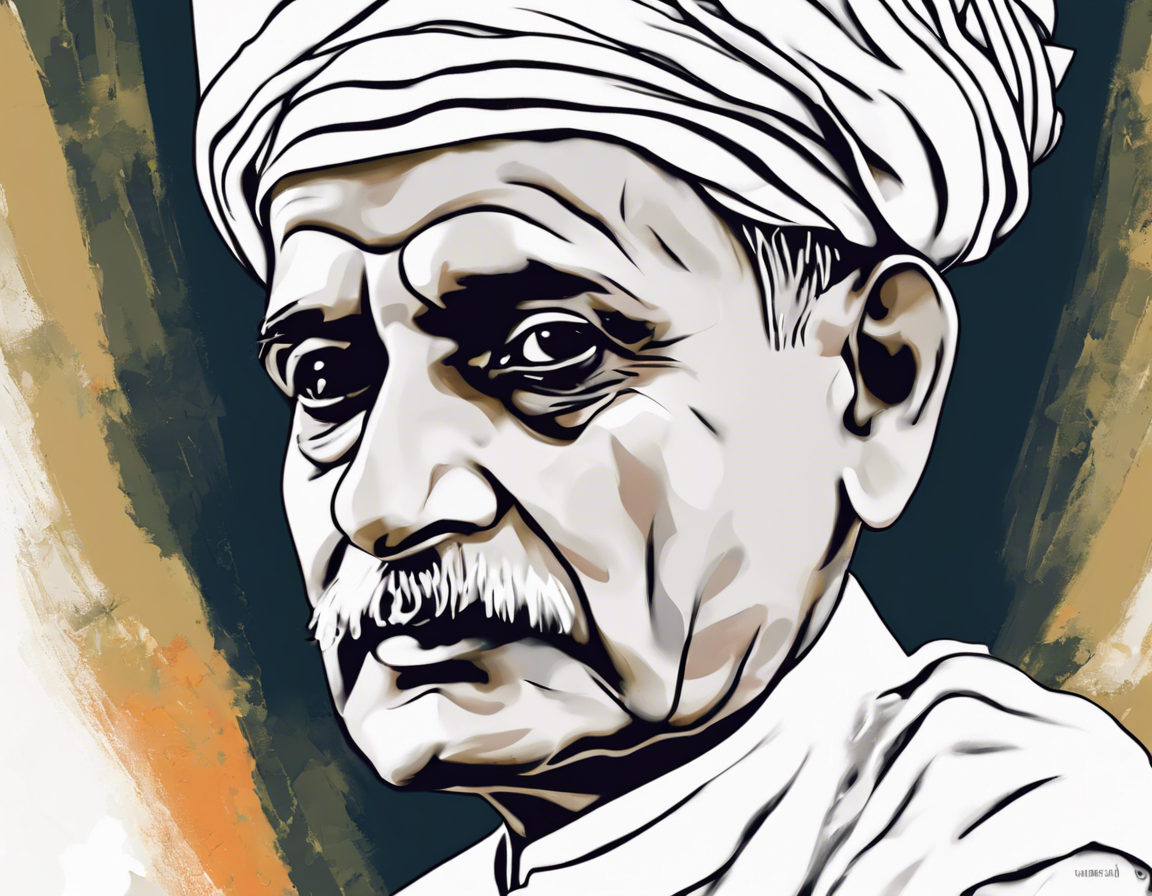Introduction:
Celebrated annually on October 2nd, Lal Bahadur Shastri Jayanti marks the birth anniversary of one of India’s most revered leaders. Lal Bahadur Shastri, the second Prime Minister of India, made significant contributions to the nation’s growth during his tenure from 1964 to 1966. His principles of simplicity, honesty, and integrity continue to inspire generations of Indians. On this special day, let us delve into the life, accomplishments, and legacy of this visionary leader.
Early Life and Education:
Born in 1904 in the town of Mughalsarai, Uttar Pradesh, Lal Bahadur Shastri hailed from a humble background. His dedication to education and nation-building began at a young age when he joined the freedom struggle inspired by Mahatma Gandhi’s call for independence. Shastri completed his education from the Kashi Vidyapeeth in Varanasi, where he was greatly influenced by the teachings of his professors and nationalist leaders.
Political Journey:
Lal Bahadur Shastri actively participated in various movements against British colonial rule, including the Non-Cooperation Movement and the Quit India Movement. His leadership qualities and unwavering commitment to the nation’s interests soon catapulted him into the political arena. Shastri held several important positions within the Indian National Congress, where he emerged as a prominent voice advocating for social justice, equality, and the welfare of the common man.
Prime Ministership:
In 1964, Lal Bahadur Shastri assumed office as the Prime Minister of India, succeeding Jawaharlal Nehru. His tenure was marked by numerous challenges, including food shortages, the aftermath of the Indo-China war, and the Indo-Pak war of 1965. Despite facing daunting circumstances, Shastri displayed remarkable leadership, urging the nation to adopt “Jai Jawan, Jai Kisan” (Hail the Soldier, Hail the Farmer) as a national slogan to boost morale and resilience.
Under his stewardship, India made significant strides in several key areas, including agricultural production, economic stability, and international relations. Shastri’s emphasis on self-reliance and socialism laid the foundation for India’s future growth and development. His decision to devalue the rupee to boost exports and various initiatives to alleviate poverty and inequality showcased his commitment to the welfare of all citizens.
Legacy and Influence:
Lal Bahadur Shastri’s sudden demise in 1966 left a void in Indian politics, but his legacy continues to resonate with people across the country. His unwavering integrity, simplicity, and dedication to public service serve as an enduring example for leaders worldwide. The Shastri Institute in Delhi and the Shastri Indo-Canadian Institute are among the institutions established in his honor, further underscoring his lasting impact on education and Indo-Canadian relations.
Commemoration and Tributes:
On Lal Bahadur Shastri Jayanti, tributes pour in from all corners of the nation, with political leaders, scholars, and citizens honoring his memory. Various events, seminars, and discussions are organized to reflect on his contributions and draw inspiration from his ideals. The significance of his leadership is reiterated through lectures, articles, and social media posts, emphasizing the enduring relevance of his vision and values.
Frequently Asked Questions (FAQs):
- What were Lal Bahadur Shastri’s key principles as a leader?
-
Lal Bahadur Shastri embodied principles of simplicity, honesty, integrity, and dedication to public service. He believed in the empowerment of the common man and advocated for social justice and equality.
-
What was the significance of the slogan “Jai Jawan, Jai Kisan” coined by Shastri?
-
The slogan “Jai Jawan, Jai Kisan” (Hail the Soldier, Hail the Farmer) highlighted the pivotal roles played by soldiers and farmers in safeguarding the nation’s security and ensuring food security. It aimed to boost morale and solidarity during challenging times.
-
How did Shastri’s leadership impact India’s agriculture sector?
-
Lal Bahadur Shastri’s focus on the agriculture sector led to initiatives promoting higher yields, improved irrigation facilities, and better support for farmers. His policies paved the way for increased agricultural production and self-sufficiency.
-
What initiatives did Shastri undertake to address poverty and inequality in India?
-
Shastri introduced various poverty alleviation programs, including the National Food Security Act, to ensure access to food for all citizens. He also emphasized the need for equitable distribution of resources and opportunities to reduce inequality.
-
What is Lal Bahadur Shastri’s enduring legacy in Indian politics?
- Lal Bahadur Shastri’s legacy in Indian politics is characterized by his ethical leadership, emphasis on public welfare, and commitment to national unity. His values of simplicity, humility, and service to the nation continue to inspire generations.
In conclusion, Lal Bahadur Shastri Jayanti serves as a poignant reminder of a leader who embodied the finest virtues of leadership and statesmanship. His vision for a strong, self-reliant India and his unwavering commitment to the welfare of all citizens set a benchmark for public service that resonates to this day. As we commemorate his birth anniversary, let us reflect on his enduring legacy and strive to uphold the ideals he stood for, ensuring a brighter future for generations to come.
